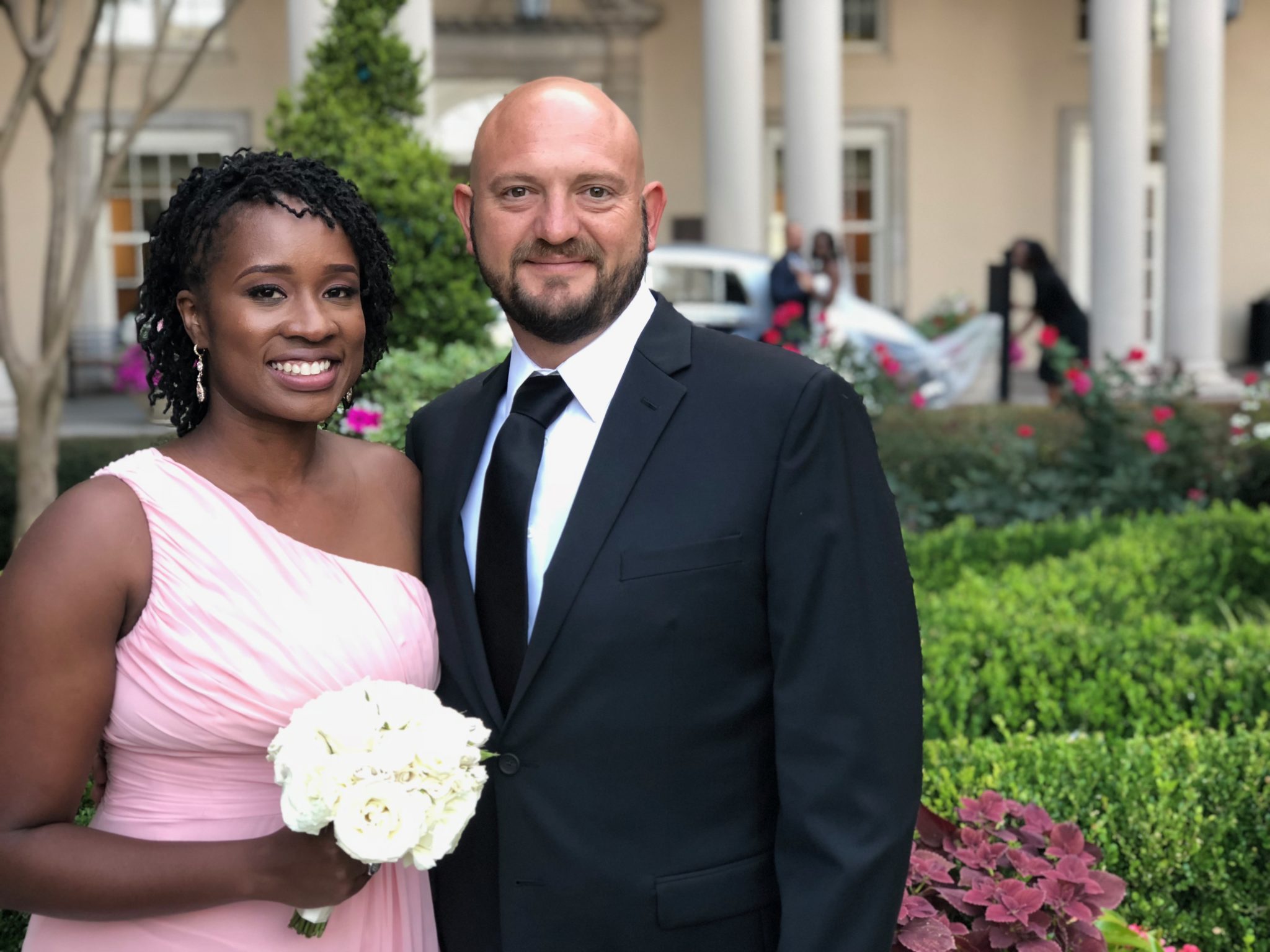I wish people were able to come together to have the same level of conversation about race in America and other sensitive subjects the way we have them in our household.
Polar Opposites
It is not that the conversations are easy in our household by ANY means because they aren’t. I am a 34-year-old middle-class African American woman from New York, who travels to nearly 6-7 countries per year, who has lived in 6 states, with a Sheriff’s Deputy for a dad and collegiate administrator for a mom.
We celebrate Kwanzaa and Juneteenth and do believe that Black Lives Matter (too).
Dustin, a 40-year-old middle-class white man, has lived in Indiana his entire life, comes from a tiny town in Southern Indiana (Population:196 in 2016), and grew up on a farm. His dad served proudly in the military and received a Purple Heart because of his efforts.
His children live in suburban America where they think crime does not exist.
War of Words
Therefore, you can imagine a subject like kneeling for the American flag, can cause a very interesting conversation. Please understand, our conversation started the same way most of these start….with a war of words, frustration, and anger.
What I won’t do is get into the details of our convo, but what I will do is tell you how it ended… with both sides being more educated.
The Education Process
I was educated on growing up in a military family and how at NO blink of an eye do you allow anyone to “attack” the flag or your patriotism. The same way I would NEVER ever let anyone say anything bad about Whitney Houston (EVER), no matter what is going on, you unconditionally protect the flag (i.e., your country).
Dustin was more educated about the history of WHY Colin was kneeling in the first place. (hint: nothing to do with the flag, 45, or our veterans) He was further educated on the history of the national anthem (Hint: Read ALL 4 verses). Among other things, he was introduced to some new information that he never encountered, because, as a middle-class white man in America……it wasn’t mandatory.
Love Broke the Tension
This conversation lasted for three days straight. The reason it was different than most conversations being had right now about the topic, is because it was an actual conversation. I was genuinely interested and invested in what he had to say. At first, I hated everything he said. I was livid, but I LOVE him, so I needed an understanding. The feelings were mutual.
It took a lot (probably more for me) to be quiet and let him talk and share his view without interrupting. We were listening for understanding versus listening to prepare the next argument.
The only difference is we care about the other person enough to listen. We love the other person enough to listen. In this case, because we listened we both have a better understanding of what we perceive the issues to be.
What Really Matters
I think there are a lot of issues, given the political climate, that can cause of very uncomfortable conversations. However, you have to go into the conversation seeing it for what it is.
-
A conversation with someone you love.

This means you need to listen to their side for understanding. You need to understand that they are not trying to personally attack you, they just have an opinion which is just as important as your opinion. Hear them. Try to put yourself in their shoes. Make an attempt to understand where their passion is coming from. Make it all the way uncomfortable in an effort to fully understand your loved one. You both deserve to hear each other’s truths. Don’t stop until you are at the root of it, but remembering that you are listening for understanding because you LOVE them.
-
A conversation with an acquaintance.

This person is someone you talk with on occasion. You may not love this person, but you do like them and you value their thought process. You need to understand that they are not trying to personally attack you. Listen to them, learn from their point of view, try to hear them out. Especially if this is a co-worker, neighbor or someone you will interact with often, I wouldn’t let the conversation get too far.
-
A conversation with a stranger.

There is no exact science of who individuals or groups can and should interact on controversial issues. If there was a proven way, there would be much less war, famine, crimes, political and religious issues. It is important that we always keep communication lines open on all issues.
That is my two cents 🙂
Thanks for listening. Make sure to follow me on Instagram at @TaliaBrookshire
Mommi Talia












Leave a Reply